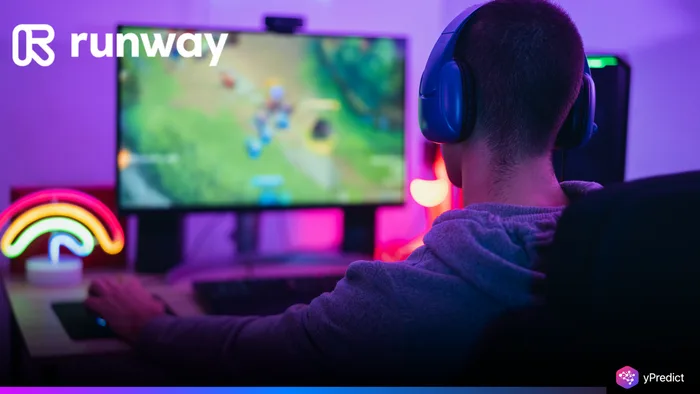
Runway, a Meta-backed generative AI startup, is entering the gaming industry with bold ambitions. Valued at $3 billion, the company now offers a suite of AI tools that help developers create characters, environments, and props using text prompts. This marks Runway’s biggest step beyond film and video production. The company aims to become a core tech provider for creative industries worldwide.
AI as a Creative Backbone
Runway CEO Cristóbal Valenzuela details how Runway’s AI tools, which have saved filmmakers 40% of production time, are now turning their sights to game dev. The new platform allows developers to immediately generate game assets, edit, and within different styles, using text prompts. Developers can edit, remix, and refine the visuals while seeing renders of different iterations at the same time.
Valenzuela asserts that this real-time editing will give game studios agency to accelerate their workflows, decrease production costs, and allow for more artistic freedom, just as Runway has enabled in the film industry.
Game Development Gets an AI Upgrade
Film production usually follows a clear, step-by-step process. In contrast, video game development involves interactive systems that combine visuals, gameplay logic, user input, and performance tuning. Runway understands these unique challenges. To address them, the company is actively collaborating with partners to integrate its generative AI tools directly into game engines like Unity and Unreal Engine.
This approach allows developers to create, modify, and implement AI-generated assets within the complex workflows of modern game design. By aligning closely with existing development environments, Runway aims to make its tools practical and effective for real-world game production.
AI in Gaming
Runway has entered gaming as the industry begins to embrace AI in core workflows. A big studio like Activision Blizzard generated visuals for Call of Duty: Black Ops 6 using AI. In addition, indie developers are increasingly using AI to reduce early-stage costs, test out new prototypes faster, and enhance the creative process, often using AI tools without sizable teams on development scope. AI is changing game development across large and independent studios.
Conclusion
Although Runway hasn’t fully disclosed how its tools will integrate with mainstream engines, the beta program for developers signals a long-term ambition: becoming a creative partner and backend AI engine for game design workflows.
Whether you’re building the next hit indie platformer or experimenting with immersive 3D worlds, Runway wants to be the canvas where ideas come to life, prompt by prompt.






